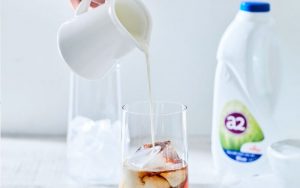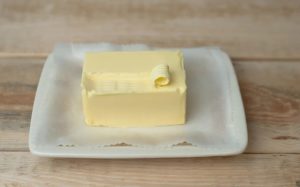
A spokesperson for the Ministry of Foreign Affairs and Trade said Kiwi exporters to the UK faced an estimated $37.8 million in total tariff duties every year.
Primary sector exports, including dairy, meat, fish, horticulture, honey and forestry, accounted for about $18 million of the duties paid to export products to the UK, while wine, beer and spirits accounted for $14 million.
The latest Ministry for Primary Industries outlook for 2022 showed wine, honey, and onions would enter the UK duty free when the agreement came into force at the end of 2022.
Tariffs on apples would be eliminated by 2025, with 99.9% of New Zealand’s existing horticulture exports entering the UK duty free as soon as the agreement began.
Some 46% of New Zealand’s current fish and seafood trade would enter the UK duty free when the agreement came into force, the outlook said.
Tariffs for butter and cheese would be eliminated over five years, with 100% of dairy trade being free in seven years, the outlook said.
Justine Arroll, manager for trade strategy at Fonterra, said the dairy industry currently had limited exposure to UK tariffs, with Fonterra exporting less than 1% of their total exports in 2021 to the UK.
This limited exposure was because of prohibitively high tariffs, with New Zealand dairy exporters facing out-of-quota tariffs of around 45% for butter and cheese, Arroll said.

With all tariff restrictions being phased out over the next five years, a level playing field would be created with European Union exporters who were the dominant source of UK dairy products. This might open opportunities for Fonterra, Arroll said.
Beef would enter the UK duty free after 10 years, the outlook said.
Matt Conway, analyst at the Meat Industry Association, said New Zealand could export beef to the UK under three quotas. The quotas had different tariff rates.
One quota was a New Zealand-specific World Trade Organisation (WTO) quota for 454 tonnes of high-quality beef. The other two were open to all WTO beef exporters outside the UK. in 2021 New Zealand exported over 1000 tones of beef to the UK, Conway said.
It was not always clear under which quota beef was sent to the UK, as some exporters did not share trade information, but tariff costs for New Zealand’s red meat exports to the UK in 2021 were estimated to be between $1.8m and $4.8m every year, Conway said.

Sarah Wilson, general manager for advocacy at New Zealand Winegrowers, said under the agreement technical barriers to trade would be removed, and certification and labelling requirements minimised.
Current tariff costs for wine depended on several factors, such as the wine packaging, alcohol content, and whether the wine was still or sparkling. A New Zealand wine exported 80.005 million litres, or 106 million 750ml bottles of wine, to the UK in 2021, Wilson said.
Savings from the lifting of tariffs would vary between businesses. Wine exporters also had to contend with price increases across the board, such as increased shipping costs, Wilson said.

























